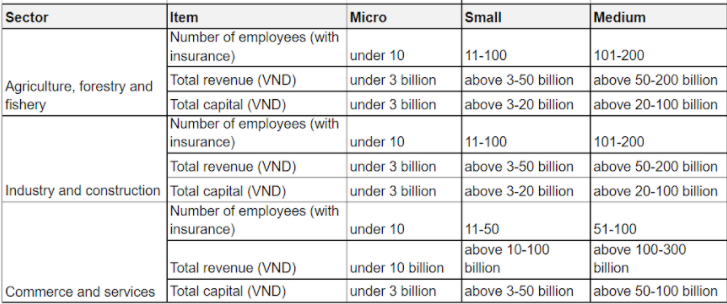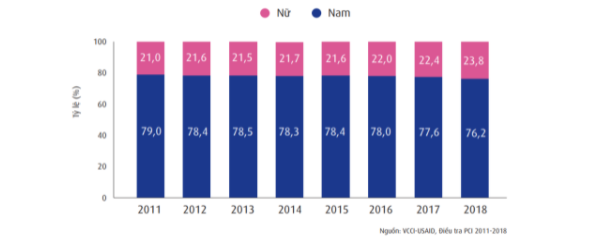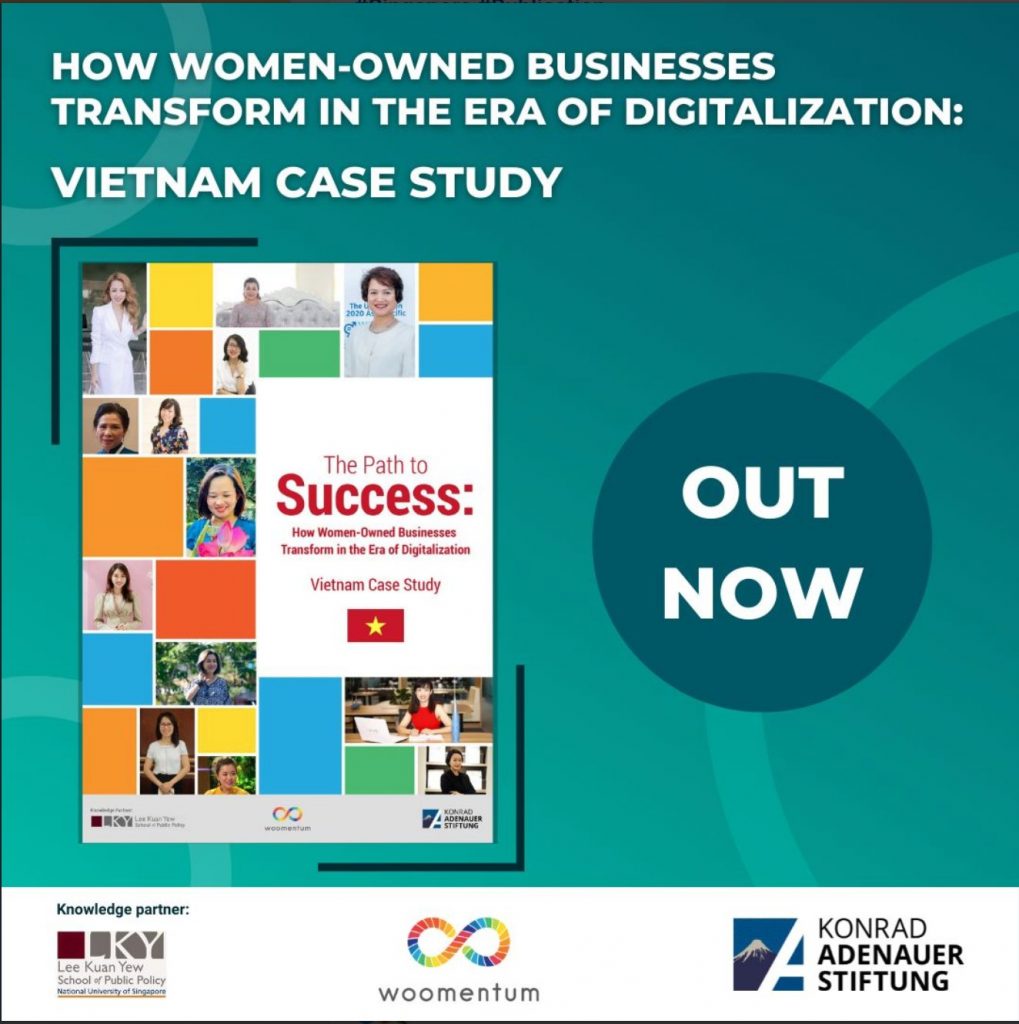The most updated definition of SMEs in Vietnam is based on Decree No.39/2018/ND-CP in Table below, which replaced the previous Decree No.56/2009/ND-CP (see Appendix).

Vietnam had more than 600,000 enterprises, SMEs accounted for 97% of all Vietnamese enterprises in 2018, 40% of GDP, and 50% of employment, mostly operate in Wholesales & Retail trade (39%) and Services sector (22.3%) [link]

According to VCCI’s survey on private enterprises in all provinces and cities, the proportion of businesses owned by women had increased over time, from 21% in 2011 to 24% in 2018. The result of VCCI’s survey is quite similar to the statistics of the Department of Business Registration – Ministry of Planning and Investment. [link]
Proportion of enterprises by gender of business owners in the 2011-2018 PCI survey.

According to the National Business Registration Database, by the end of September 2019, there were 285,689 women-owned businesses nationwide, accounting for 24% of the total number of enterprises across the country. Almost all are small and micro sized enterprises operating mainly in the service sector.
In today’s rapidly changing business environment where digitalization has been accelerated by the COVID-19 pandemic, going digital is no longer an option but a necessity for business continuity. While many SMEs recognize the need to digitize, the road to digitalization can be met with many challenges and requires business owners to make informed management decisions: What digital tools are most suitable to manage and operate my business? Are the costs and time required for adoption even worth the benefits? How should I deal with employees when they are resistant to digital change? InnoLab Asia is glad to partner with Woomentum and KAS to conduct this research to listen to experts and experienced entrepreneurs discussing the best practices to manage resources – specifically time, costs and people – during digital transformation.



